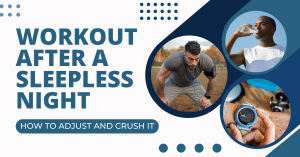Have you ever been reading an article about an innovative new workout or a novel approach to training and suddenly thought to yourself, “eh, this doesn’t apply to me, I’m too slow”?
If you’re anything like the runners who comment on our articles, facebook groups or social media, I bet you have.
I’m confident of this because every time we do a survey of our readers to get a feel for what content they want more of or what they liked and didn’t like, we receive a slew of replies along the lines of “you never write anything for us slower runners”.
The truth is, almost all information about training is applicable to you – slow, fast, old, young and everything in between.
The physiology of your body works the same no matter how fast you can run.
Now, some training ideas and workouts may not apply to you because you’re not experienced enough, running enough volume, or training for a specific race distance. But, that has nothing to do with how fast or slow you are.
So, in this article I want to help you reframe how you think about your training and your workouts so you can appreciate (and apply) quality training advice no matter your pace.
Physiology
Let me state this again…
The principles of exercise physiology and how they apply to your body are the same whether you’re running 5 minutes per mile or 13 minutes per mile.
Your aerobic system functions the exact same way, your VO2max is calculated the same way, and the physiological demands of the race stay the same.
As an example, we know from research that mitochondrial, capillary, and myoglobin development is optimized when running around 65 percent of your 5k pace.
Likewise, lactate threshold corresponds to an effort of about 66%-75% or your VO2max.
Both of these physiological markers occur at the same effort levels, regardless of whether you’re fast or slow. The only thing that changes is the paces you’re running at in order to achieve the goal of a particular workout.
I wanted to reiterate this point because it’s the most important concept to grasp. Once you realize that the physiology is the same, you can begin to understand how all articles on training can apply to you.
Now that you understand that the physiology is the same, what does change for faster or slower runners when it comes to training advice?
Experience Level
The first thing you need to adjust for is your experience or training level. Now, this doesn’t mean just the number of years you’ve been running, but also your weekly training volume.
As an example, if you’re only running 30 miles per week (50km per/week) than you may want to shorten an interval session that calls for 6 miles (10km) of hard running down to maybe 3 miles (5k) of hard running.
This is usually where runners need to adjust generalized workouts or training concepts they read about.
It’s difficult to give specifics about how much you need to adjust without knowing your background and current training, but my advice is always to be cautious and try a scaled down version of a workout first and see how your body responds.
Individual adjustments
This is where generalized workout advice or a training concept might change when adapted to you, but not because of your pace.
Rather, this is based on your individual strengths and weaknesses.
Some runners are naturally stronger with longer distances and others have a little more sprint speed. There may even be some workouts you simply excel at and others you struggle with (for me, I can never seem to hit cutdown workouts).
So, when you read about a new workout or training approach, consider what workouts you’re best at and how this new one might fit into your existing strengths and weaknesses.
I hope after reading this article you better understand that even though we may write about different types of workouts and some of them may seem intimidating, you can always adapt them to your own paces to get the same physiological benefits as your speedy brethren.







